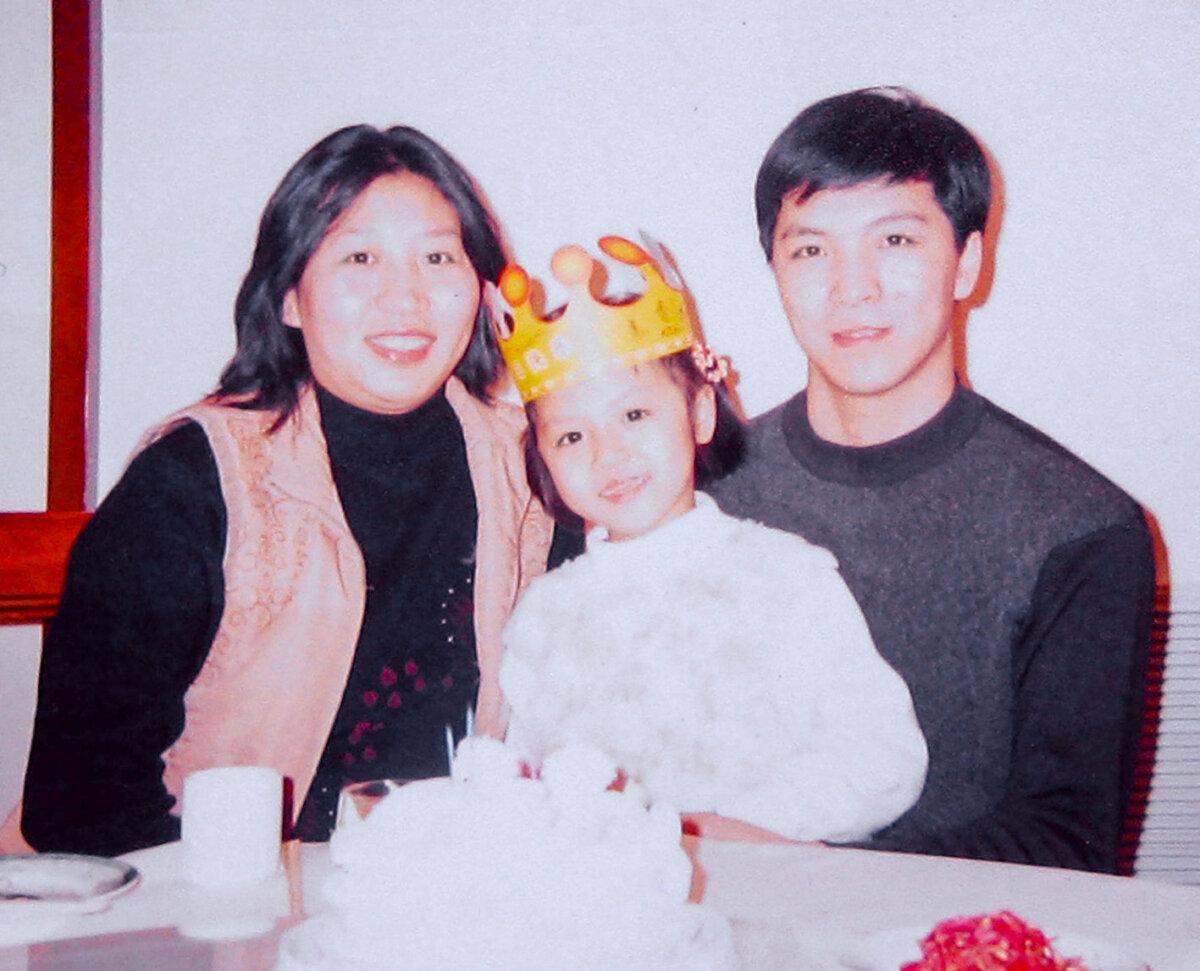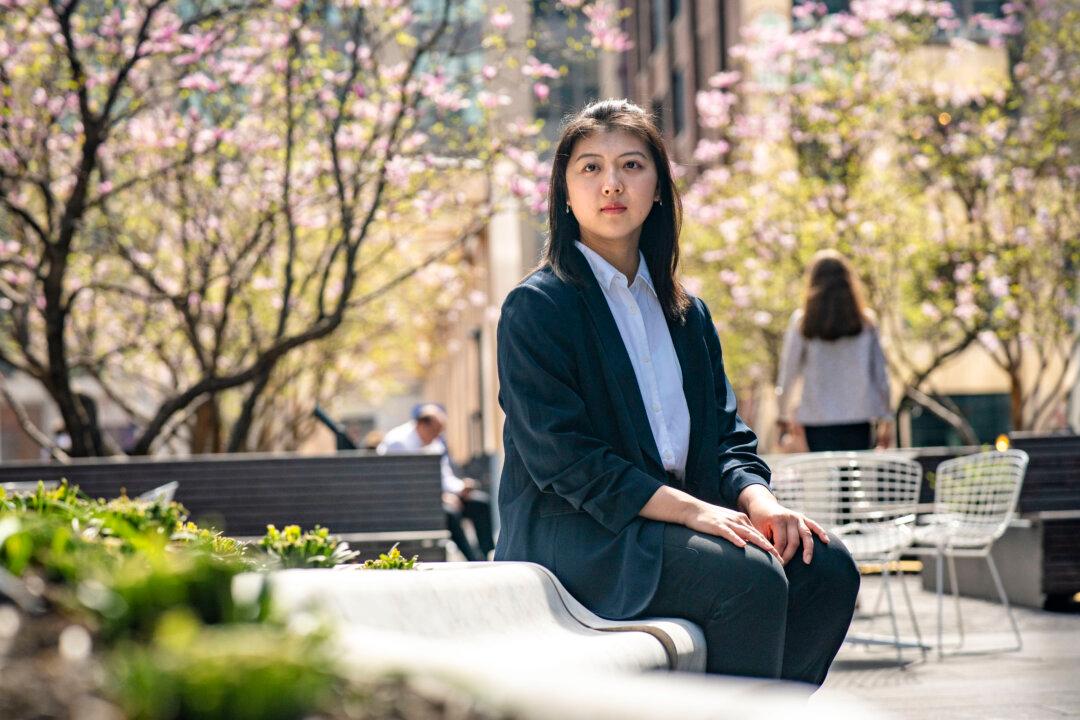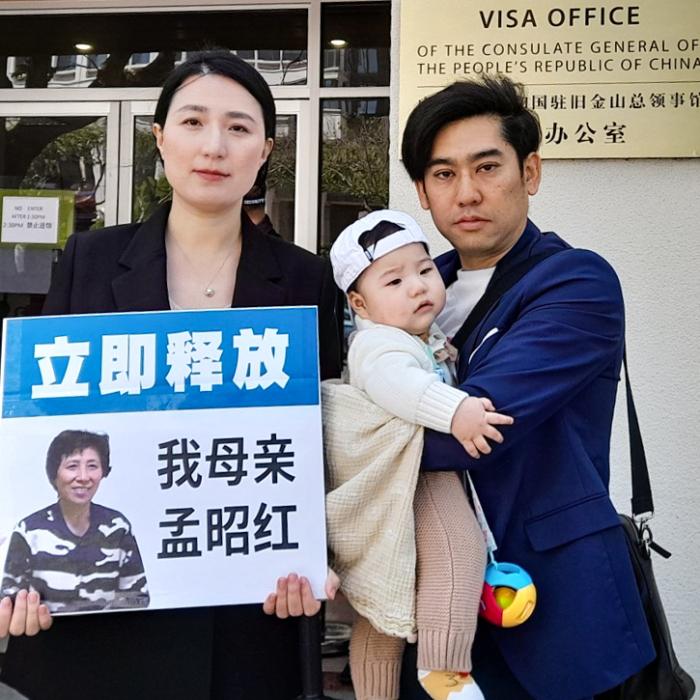NEW YORK—Han Guangzi opened her eyes when her phone lit up unusually early with a beep.
The next moment, she was wide awake, trying to take in the news she most dreaded.
On her phone was one line from her mother: “Your dad was arrested again.”
“It’s the nightmare all over again,” she told The Epoch Times.
Ms. Han, a U.S. citizen, had lived a nightmare for the first 13 years of her life in China—a country in which Falun Gong, her faith, is a forbidden word as far as the Chinese Communist Party (CCP) is concerned.
Ms. Han’s father, Han Wei, worked as an office director for the state-run highway system in China’s northernmost province, Heilongjiang. In 1999, he was fired after he refused to renounce his beliefs, and the family lost their main source of income. His first arrest happened when Ms. Han was not yet a month old.
Ever since Ms. Han was little, she'd seen Chinese police in their black uniforms crowding her family home. Now, 11 years after Ms. Han escaped to the United States, the latest arrest of her father has brought those memories back.

The March 29 arrest marked her father’s fifth illegal detainment for his faith. Mr. Han, who has U.S. refugee status, had by then lived in seclusion for years to avoid police harassment. The authorities nonetheless tracked him down after he sent some text messages to others to bring awareness to the CCP’s persecution campaign.
Through big data, the police first located Mr. Han’s brother, who doesn’t practice Falun Gong, and raided his home. His brother’s girlfriend was so panicked that she had a heart attack right then and had to be hospitalized, Mr. Han’s wife, Lu Shiyu, told The Epoch Times from New York.
After detaining Mr. Han’s brother, the police then tracked down Mr. Han through facial recognition tools and Mr. Han’s phone location data, descending on him while he was shopping for groceries.
Ms. Han is a student of Fei Tian College in New York and has been touring with Shen Yun Performing Arts, a New York-based company whose mission is to present China’s millennia-old civilization through classical Chinese dance and music, free of communist influence.
She only found out what happened to her father about a week after the fact—a lag the family blamed on the Chinese regime’s lack of proper legal process and no regard for the targeted group’s basic rights.
The police didn’t notify the family or present any documents during or after the arrest.
“There was no proceeding, no warrant, nothing,” Ms. Lu said.
From the bits and pieces that her in-laws in China gathered, Ms. Lu learned that the police had interrogated Mr. Han, but they couldn’t pin down the details.
“In a Chinese jail, anything can happen,” Ms. Han said.
She hasn’t heard her father’s voice since she left China in 2013.
In 2015, the United States granted Mr. Han refugee status. He booked a New York-bound flight to reunite with his family that November.
But at customs, an officer told him that his passport was invalid; it had been revoked by local authorities “because the individual practices Falun Gong,” according to Ms. Lu.
Mr. Han suffered harshly during his previous arrests. In 2001, police shackled him to a chair to beat him, covering his head with a plastic bag until he nearly suffocated. In a bid to force Mr. Han to renounce his belief, they handcuffed him to a door frame so that his body weight rested entirely on the handcuffs. They then swung his body to aggravate the pain. He stayed in that position for a full night. The scars on his wrists remain to this day.
In 2006, in a detention center and labor camp where Mr. Han spent 1 1/2 years, the police sometimes put tape over his mouth to prevent him from protesting his treatment.
Twice, he started a beverage business to make a living, and twice it prospered—only to fall apart when he was arrested again.
In 2016, after Mr. Han was jailed for more than two months, international pressure led the police to place him under house arrest. Mr. Han evaded his monitors and hid in rural areas. He didn’t reveal his location even to his family. For several years, he didn’t use a phone or a computer.
“He lived like a caveman,” Mrs. Lu said. “I didn’t dare to ask where he was.”
](/_next/image?url=https%3A%2F%2Fimg.theepochtimes.com%2Fassets%2Fuploads%2F2024%2F04%2F10%2Fid5626315-EpochImages-3245013967-1200x800.jpg&w=1200&q=75)
Ms. Han’s worst fear through all these years has been that she might not be able to see her father again.
As a 7-year-old, she had visited her dad in prison in 2007 and found him in a room that looked to her like a cafeteria. He said very little and kept smiling at her, but Ms. Han noticed his teeth seemed crooked. He'd lost a front tooth while imprisoned, the family said.
In the days without her father, the house felt “very empty,” she recalled. “I was afraid that my classmates would ask where my dad went. I wouldn’t know what to say,” she said.
Even in the days when they were together in China, fear of a possible arrest always loomed over them. Each time a phone call to her father didn’t get through, it frightened the family.
Ms. Han is appealing to Americans to help put the spotlight on the plight of persecuted people in China such as her father, whose love she has been deprived of for more than a decade because of the Chinese regime. If nothing else, she said, she wants to see the authorities set him free, to know that at least he’s safe.
The CCP has “no right to persecute anyone,” she said.







